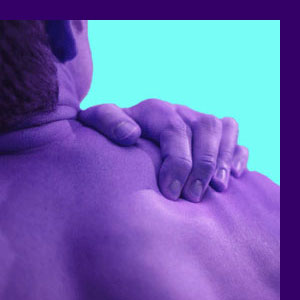
A stiff back is a common complaint of many back pain patients, including this author. Stiffness in the back can be both an uncomfortable experience, as well as a source of great worry and aggravation for any affected patient. Stiffness is sometimes the harbinger of imminent painful symptoms or the after effect of acute symptomatic flare-ups. Chronic stiffness can be a problematic issue unto itself, since long-term tension can limit physicality and even impart negative psychoemotional effects, such as listlessness and depression.
This article will separate muscular stiffness from spinal stiffness, in order to help patients better understand the reasons why they experience this physically-limiting discomfort.
Muscular Stiff Back Condition
Stiffness might be experienced in the muscles and ligaments of the back and spine. This is the most common variety of chronic complaint. Patients with this form of muscular stiffness often describe their back as feeling tight, tense and ready to snap. These patients often have a self-guarded range of motion, since they perceive that injury is just around the corner if they move the wrong way. Many patients have trouble bending and twisting and might have specific activity restrictions which may or may not be justified or logical. This decreased range of motion is most typically perceived, rather than actual.
Muscular stiffness can be the result of injury or sympathetic reaction to a spinal cause, but is far more commonly the result of oxygen deprivation back pain attacking the blood supply to the soft tissues using vascular constriction. The root causation for some of these cases is psychosomatic in nature. This helps explain why typical treatment approaches do little to correct the condition and are usually lucky to temporarily reduce the symptoms.
Spinal Stiff Back Condition
Patients with verified spinal causes for their back pain and stiffness account for a far smaller percentage of the total population than patients suffering from simple muscular stiffness.
Spinal arthritis conditions, including facet joint syndrome, are the typical causes of spinal stiffness, especially if significant bone spurs have developed around the spinal joints. These patients will often experience an actual decreased range of motion, rather than the perceived reduction in functionality common to muscular stiffness patients.
Individuals with spinal stiffness have a more difficult time finding an effective solution to their conditions, since the spinal structures have suffered considerable degeneration. However, just because a patient has spinal stiffness does not mean that they will experience pain, or any other problematic symptom, in addition to their reduced range of motion.
Fixing Back Stiffness
I was plagued with a very stiff back during my entire back pain experience. As my pain grew, I became more and more stiff. I felt greatly restricted in my movements and often had the feeling something in my back was about to snap. My doctors came up with many explanations for this tense, uncomfortable feeling, but none could find any solution for the condition. Eventually, I found my own cure and beat my back pain into utter submission. It only took me 18 years… sigh.
I was diagnosed with a plethora of symptomatic conditions, but none turned out to be the actual reason for my pain. I realized that the stiffness I suffered from was definitely a psychological protective mechanism I had developed to constantly remind myself of my bad back.
This constant reminder was all part of the psychosomatic perpetuation of my symptoms which was never properly diagnosed during my entire agonizing journey through the healthcare system. I had a combination of spinal issues causing actual decreased range of motion, compounded with severe muscular tightness in the back and legs which really prevent my physical expressions form being too dynamic at this stage. I felt like a mess.
I know that my more recent symptoms are a combination result of mind and body issues. I can not do much to resolve the bodily concerns, but I can work daily on the psychoemotional causes and contributors. I find this mindbody work helps tremendously in keeping me active and physically fit, despite my pain. Remember, psychological issues which cause and contribute to pain and stiffness might never truly disappear, although they can be beaten into remission. They are inherent parts of my personality and yours, and must be actively treated throughout life to maintain states of positive mental and physical health.
I am fortunate to have found a real cure. If you need help finding yours, our acclaimed and proven pain relief program is available right now for immediate assistance.





